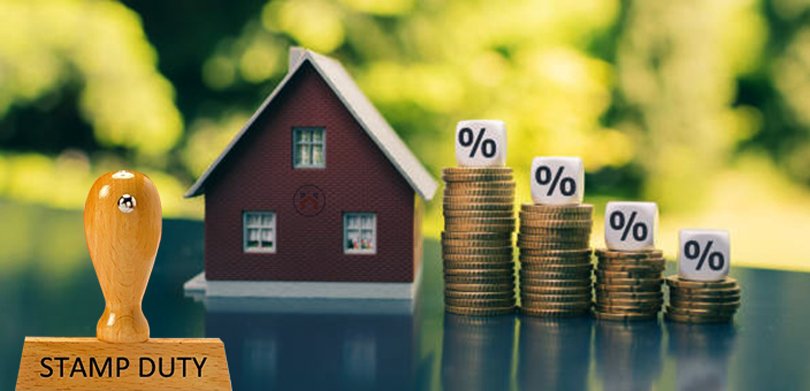Disclaimer:
With 10+ years of experience & expertise in the real estate industry, Homebazaar provides end-to-end property-buying solutions. Hundreds of 100% verified RERA-registered residential & commercial properties are listed on our website. We provide facilities like Zero brokerage, 360° virtual street view, quick site visit services, end-to-end property buying agreements & documentation guidance and low-interest home loan assistance. This helped us gain the trust of 55,000+ clients across India & sold 6,500+ homes of top reputed developers.
Page Contents
- What Are The Benefits of Registering Property in Wife’s Name?
- Women Get a Discount on Stamp Duty
- Tax Benefits on Wife Name Registered Homes
- Home Loans for Women at Reduced Interest Rates
- Benefits Under PMAY
- Other Benefits of Registering Property In Wife’s Name
- Can Husband Take a Home Loan on Wife Property?
- Can Husband Claim Its Benefit on Wife Property?
- Can Husband Buy Property in Wife’s Name?
- Registering Property in Wife’s Name: Key Points
- FAQs
What Are The Benefits of Registering Property in Wife’s Name?
Governments and banks both provide benefits for women who own real estate in their names, whether as sole or part owners. These benefits include a discount on stamp duty, taxation benefits, a discount on the interest rates on the home loan, and PMAY.
If you intend to invest in a property or thinking of buying a house you must consider registering it in your wife’s name to get all the benefits. Women are getting encouraged due to these benefits of investing in the real estate sector.
Women Get a Discount on Stamp Duty

If the property is registered in the woman’s name government offers a 2-3% discount on stamp duty. This discount varies from state to state. Even if the woman is the sole owner of the property or joint owner still eligible for the stamp duty discount.
In Maharashtra, 5% is the stamp duty rate for women, compared to 6% for men. States like Haryana, Punjab, Delhi, and UP also provide relaxation on stamp duty for women home buyers.
Stamp duty charges for Women vs. men
| State | For men | For women |
| Jharkhand | 4% | 4% |
| Delhi | 6% | 4% |
| Haryana | 7% in urban | 5% in urban |
| UP | 7% | Rebate of Rs 10,000 on overall charges |
| Rajasthan | 6% | 5% |
| Punjab | 7% | 5% |
| Maharashtra | 6% | 5% |
| Tamil Nadu | 7% | 7% |
| Karnataka | 2% to 5% | Same |
Tax Benefits on Wife Name Registered Homes

There are several obvious tax advantages of purchasing a home in the wife’s name, according to experts, include an additional interest deduction of up to Rs. 1.5 lakh each financial year, if the residence is self-occupied. It is still applied if no one is living in the house.
A husband and wife may each claim a tax deduction if they are joint owners of the property and both have different sources of income. The tax benefit will vary according to each co-ownership owner’s stake.
The wife is eligible to claim the total amount of interest if the property is rented out.
Home Loans for Women at Reduced Interest Rates

In India, most homes are funded through bank home loans because they are a viable and efficient means of purchasing a dream home.
The majority of leading banks in India offer concessions on home loan interest rates with few schemes and benefits.
Banks like SBI started schemes like ‘Har Ghar’, and’ Women Power’ by HDFC, ICICI, Union Bank Of India, etc. are encouraging women buyers, working women, and women entrepreneurs to invest in real estate by offering such benefits.
Banks prefer giving loans to women because they are thought to be more reliable and serious about repaying loans and less likely to miss payments.
Benefits Under PMAY

Pradhan Mantri Awas Yojana PMAY was introduced in 2015 to provide affordable housing for the urban poor. In this women have maintained as members of the chosen class of homebuyers.
There is no marital status and gender required to avail of this scheme, so single women also can apply for PMAY for home loans or subsidies.
According to PMAY regulations, the owner of the home must be at least one female family member. If a woman owns the home, the government would subsidise the purchase up to a total of Rs. 2.67 lakh.
Other Benefits of Registering Property In Wife’s Name
Financial assets can be protected and secured if the house is registered in the wife’s name.
If the husband suffers a loss or debt in business, neither the government nor creditors may seize the house registered in the name of the wife to make up for the loss, so long as the woman is not a co-owner or guarantor of any loans taken out by her husband.
If a couple shares ownership of a home or other asset, they have an equal claim to the succession. So, in the event of a partner’s unexpected passing, the surviving partner may exercise his or her ownership interests in the property. Other family members are not involved in legal conflicts, and the cost of mutation is reduced.
Can Husband Take a Home Loan on Wife Property?
You can save money if you decide to buy a house in your wife’s name. In the case of a home loan, you should be the joint applicant if you want to borrow money against the property register under your wife’s name. Your wife has the option of choosing a house loan, or you both can. Since the property is not registered in the husband’s name, he cannot obtain a house loan.
Can Husband Claim Its Benefit on Wife Property?
Certain benefits come when a property is registered in the wife’s name. A husband can claim those benefits.
Providing the money used to purchase the property was legitimate and from known sources, the husband may claim ownership of any property purchased in the wife’s name.
If a husband wants to claim for tax benefit for property which is registered under his wife’s name then he has to be a joint owner in the same else he cannot avail of the taxation benefit.
Can Husband Buy Property in Wife’s Name?
Yes, a husband is permitted to purchase real estate in his wife’s name because by doing so he is entitled to several tax breaks and exemptions, such as a reduction in stamp duty.
Registering Property in Wife’s Name: Key Points
According to experts, purchasing a home jointly with the wife’s name or in her name is a smart move.
Homebazaar.com’s AVP Mangesh Jagtap highlighted benefits for homebuyers in a recent discussion, he said, ” Benefits associated with choosing to buy a house in the wife’s name. Purchasing a property in the wife’s name not only holds potential tax advantages but also contributes to building a more resilient and diversified financial portfolio for the family. Additionally, it fosters financial independence and strengthens the credit profile of the wife. “
Additionally, both the husband and wife will be engaged in the case if there is a legal disagreement over the property. Therefore, before making a decision, prospective homeowners should consider all options.
The property will be divided in the event of divorce according to the wife’s share as stated in the selling deed. Whether the wife contributed financially to the purchase or loan repayment, this would still occur.
FAQs
| Can I take a home loan if the land owner is only my wife?
You must be the co-owner of a particular property to get a home loan. A brother and sister or sister and sister cannot be the co-applicants. |
| Can my wife pay my home loan?
Sometimes only one of the couple, the husband or the wife is qualified for a loan, but the amount of the loan itself might not be enough. In this situation, the husband and wife can choose to take out a joint mortgage. The couple’s problems are resolved, and they can repay the instalments jointly. |
| Can the husband give interest-free to the wife?
The husband may lend money to his wife, who may then use it to finance the purchase or building of the real estate, the purchase of shares, or other assets. |
| What is the advantage of a joint home loan?
If two people apply for a house loan jointly and are co-owners of the property and are both making a repayment contribution, they can each benefit individually from the tax deduction available on home loans. |
| How can I save tax if my wife is not working?
If you give your unemployed wife money to invest, the taxman will include the earnings in your yearly income. However, there are no tax repercussions if you buy in tax-exempt securities. |








